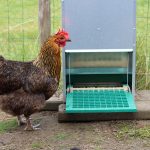Do Chickens Mourn?
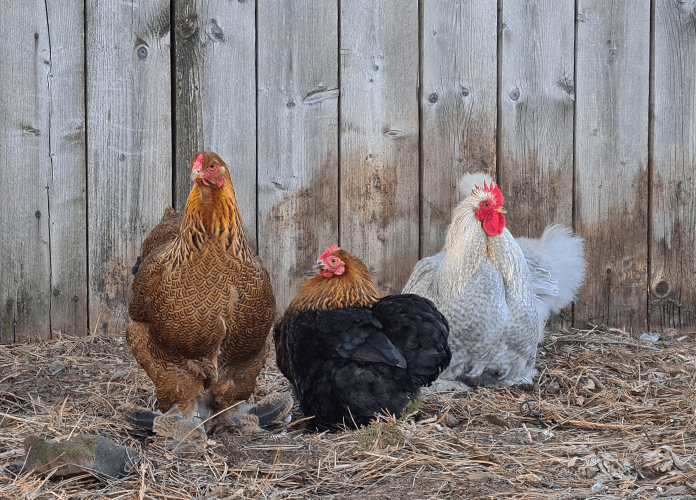
Telling you what’s going on inside a chicken’s mind after a flock member has passed is impossible. But there’s been several studies showing explicit grieving behavior in birds after losing a companion, just like a human would do.
We’ll take you through the ins and outs and determine the most common chicken mourning behavior.
Behavior After a Flock Member Dies
Different aspects determine a chicken’s behavior after another chicken dies. Was there a predator attack inside the chicken run, killing a chicken? Were multiple chickens killed? Was another hen close to the chicken who died? Did a baby chick die under the guard of her hen-mom? Or maybe the hens said goodbye to their beloved rooster?
Predator Attack
A predator attack is a widespread cause of death in chickens.
Predators sneak inside the chicken coop and kill as many chickens as possible. It speaks for itself; this is a traumatic experience for surviving flock members. It can take them some time to recover mentally from this attack. Chicken keepers tell stories about hens not willing to leave the chicken coop for days and days. Of course, this has less to do with mourning and more with the fear of being attacked again.
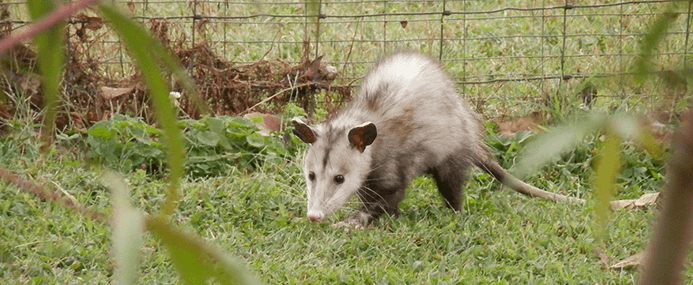
Depending on how many chickens were killed in the attack, it’s crucial to introduce the remaining chickens into a new flock as soon as possible. When used to a big flock, they’ll feel safer once the number of chickens inside the run has been restored. If only a single chicken got killed, you don’t need to replace it immediately.
The rule of thumb is never to keep just one chicken. Make sure she gets new company when other flock members pass away.
Chicken Bonding
When two chickens are close, they’ll mourn over each other’s death.
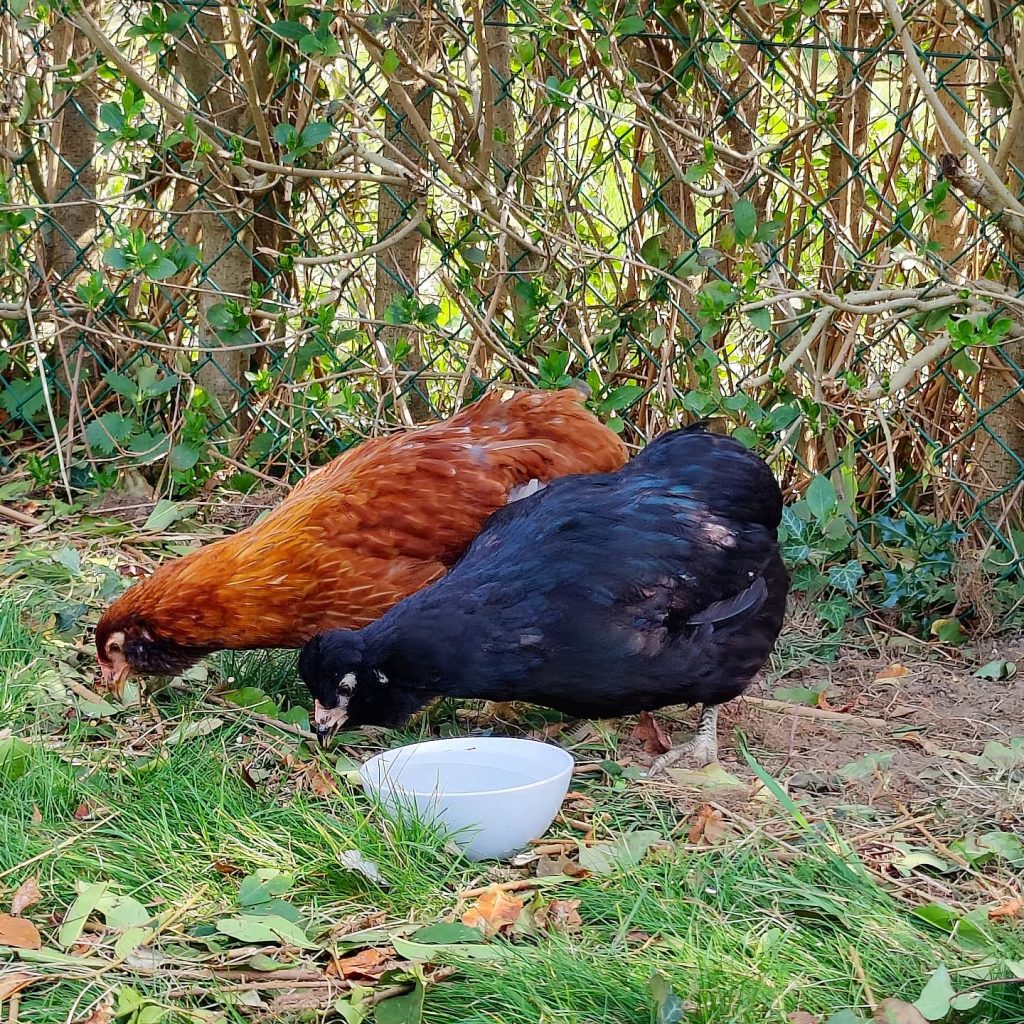
Barbara J. King, author of ‘How Animals Mourn,’ wrote about the grief of poultry animals after a friended bird dies. She tells a story about two ducks, Kohl and Harper, who were brought to a rescue sanctuary after living on a foie gras farm. The ducks bonded and were exceptionally close to each other. Kohl, one of the birds, had to be euthanized after some time in the rescue center due to a liver disease that was brought back to the force-feeding on the farm. The second bird, Harper, was by Kohl’s side when he died and kept pressing the still body. Eventually, Harper rested his head on Kohl’s body and stayed in this position for hours, which can be seen as grieving.
So it’s not uncommon for a chicken to mourn over the loss of a friend, but most flock members will return very soon to the daily routine without any signs of grief or sadness.
Mom’s Mourning
Many scientific studies show that animal parents will mourn the death of their baby. We can say it’s the same for birds.
One example: A birdcam filmed an eagle attack on an Osprey nest with two baby chicks. After the attack, both parents surveyed the land, calling out for the chicks. It’s believed the mother was crying out for her babies.
When a Rooster Dies
A rooster is a flock’s boss. His task is to protect the hens, and as their survival chances depend on him, he’s number one in the pecking order. Most chickens bond with the rooster, so it leaves a void in the flock when he dies.
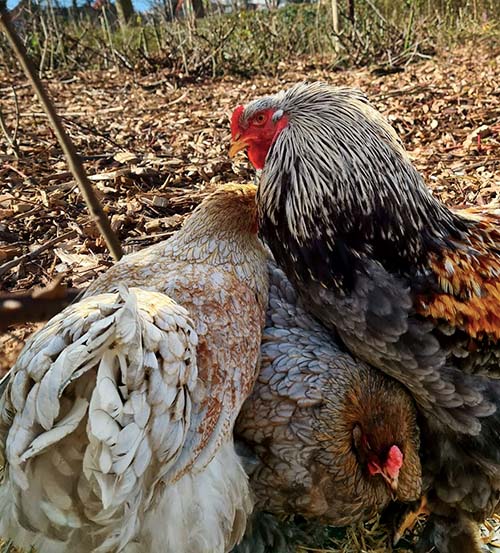
Some chicken keepers like to compare this grief with being lovesick or heartbroken. Your hens might stop laying eggs for a while and look depressed. But eventually, they’ll reform the pecking order, and the lead hen will take over the roosters’ tasks quite easily.
Can Chickens Predict When A Flock Member Will Die?
Chickens aren’t fortune tellers, but in case a hen gets sick, other flock members know whether she will die or not. Most animals separate from their group to die alone, so when a sick hen withdraws from the flock, she probably won’t make it. After separating from the flock, it may look like other chickens come and say goodbye to the dying chicken. We’ll never know whether that is the case, but they’re probably just wondering what is going on. They leave the dying chicken to die on her own and resume their daily routine even before she has passed.
How Can You Tell A Chicken Is Sad?
Sickness
It can be hard to spot the difference between a sad chicken and a sick chicken. Ill hens are overall unhappy, with puffed feathers, pale comb, and possibly won’t leave the coop. Keep a close eye on a listless hen. Check the stool, make sure she drinks and eats enough, and look for signs of parasites, or diseases like sour crop, or coccidiosis to rule out common health issues. If your chicken doesn’t improve after a few days, a visit to the vet is necessary.
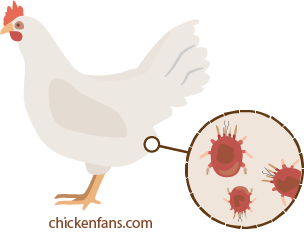
Stress
Stressed chickens are unhappy chickens. There are multiple causes of stress in chickens.
- Predator attack
- Loud noises near the coop
- Not enough space
- Bullies in the flock
- Molting
Predator Attack
As previously addressed, a predator attack can shake up your chickens badly. Let them adjust on their own time. When they feel safe again, they’ll resume their daily life.
Coop Environment
Chickens feel stressed when the coop and run environment does not suffice. Loud noises are a big no and will likely cause stress. But more importantly, they need enough space. How much space to provide for your flock? We’ve created a coop size calculator, so you know how much space to provide inside and outside the coop. But the more space they have, the better!
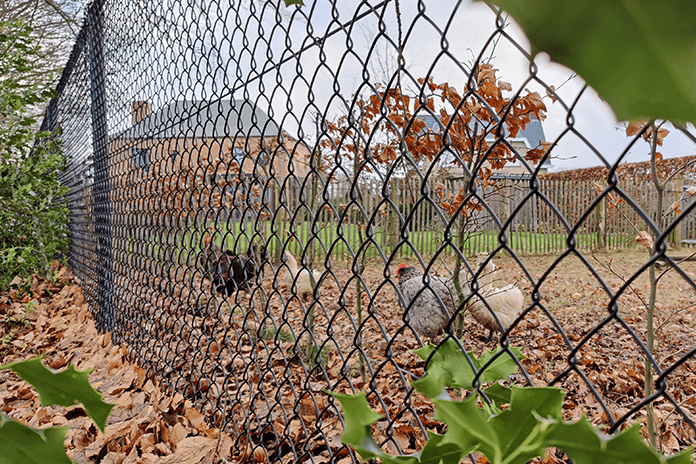
When chickens live too close, they quickly pass on diseases that cause sick chickens.
More hens in one spot means more chicken poop, spilled water or food, and chickens that keep running over the spilled water and poop, leading to filthy living conditions. When packed in a small space for too long with other chickens, they will be unhappy, unhealthy, and miserable.
Bullying
Bullying is not always a problem when it’s part of maintaining the pecking order. But keep an eye on the bully and the bullied hen. When she’s hurt and scared, remove the bully from the flock for a few days and try again.
Molting
Molting is a standard and yearly process that looks scary but isn’t dangerous. However, your chickens could use some extra attention and care during this time of year. Chickens’ skin is very sensitive during molting and should be handled accordingly. Please don’t pick up your chickens during molting as it can be painful.
Can you cheer up a chicken?
It’s unnecessary to try and cheer up your chickens when they feel sad or when they are mourning. They’ll get back to their normal behavior in no time! But during difficult times of the year, for example, during molting or cold and dark days, you can give them some extra attention, treats, or TLC.
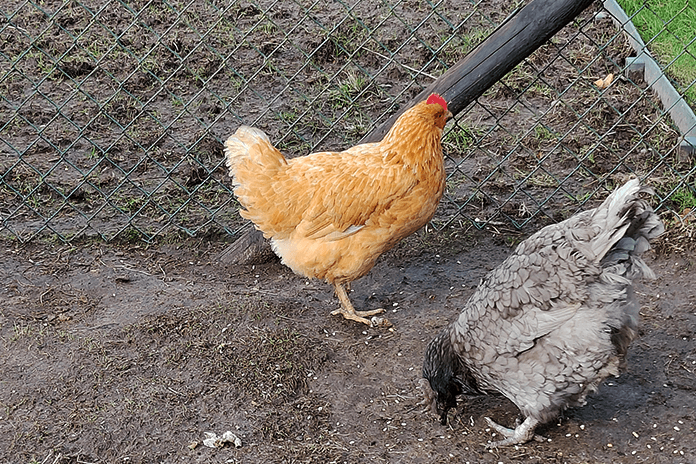
Provide enough dust baths inside the chicken run, as this is their favorite activity. Make a cabbage or lettuce pinata, so they can enjoy a healthy treat while exercising. Dig a few small holes and hide mealworms for them to find. But there’s a ground-rule: don’t exaggerate. Never feed your chickens more than 10% of their total feed of the day in snacks.

